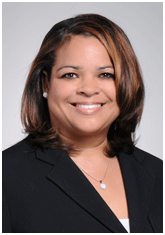|
|
For Immediate Release:
Feb. 5, 2013 |
Contact: Sheron Fulson
(573) 751-3158 |
Senator Curls Thanks Her Colleagues for Advancing Senate Bill 7 |
| Measure Gives the State Flexibility When Intervening in Failing School Districts |
JEFFERSON CITY — Senator Shalonn “Kiki” Curls, D-Kansas City, thanked her colleagues in the Missouri Senate for fast-tracking legislation that removes the two-year waiting period that exists when a school district loses its accreditation until the time the State Board of Education becomes involved. The Kansas City Public School District lost its accreditation Jan. 1, 2012.
“I spent months last year talking to parents, teachers, school administrators and other stakeholders to find a solution to our school district’s loss of accreditation. We came up with an acceptable solution, but unfortunately, House leaders held the bill hostage on the final day of session over an anti-teacher tenure bill we could not support,” Sen. Curls said. “Those political games were a slap in the face to the 17,000 Kansas City public school students who deserve a quality education.”
SB 7, sponsored by Senate Education Committee Chairman David Pearce, R-Warrensburg, is substantially similar to the bill that received unanimous Senate approval last year. It requires the Department of Education to conduct at least two public hearings regarding the accreditation status of a school district, and the hearings must consider community resources that could be utilized in helping the school district regain accreditation.
“If we can get this bill to the governor’s desk in the next few weeks or so, the State Board of Education could begin holding public hearings on the district’s accreditation status this summer instead of next year,” Sen. Curls said. “The sooner we can get together as a community to begin the work of regaining accreditation, the better it will be for our students. The most important aspect to me is our student academic achievement.”
When it classifies a district as unaccredited, the State Board of Education may allow continued governance by the existing local board of education. If the state board appoints a special administrative board to oversee the district, the board must consist of at least five members, with the majority being district residents. In addition, the board members must reflect the population characteristics of the district and collectively possess strong experience in school governance, management, finance and leadership. A special administrative board will be responsible for the operation of the district until it is classified as provisionally accredited for two successive school years, at which time the State Board of Education may provide for a transition back to local governance.
SB 7 must receive one more affirmative vote in the Senate before moving to the House.
|
|
|



